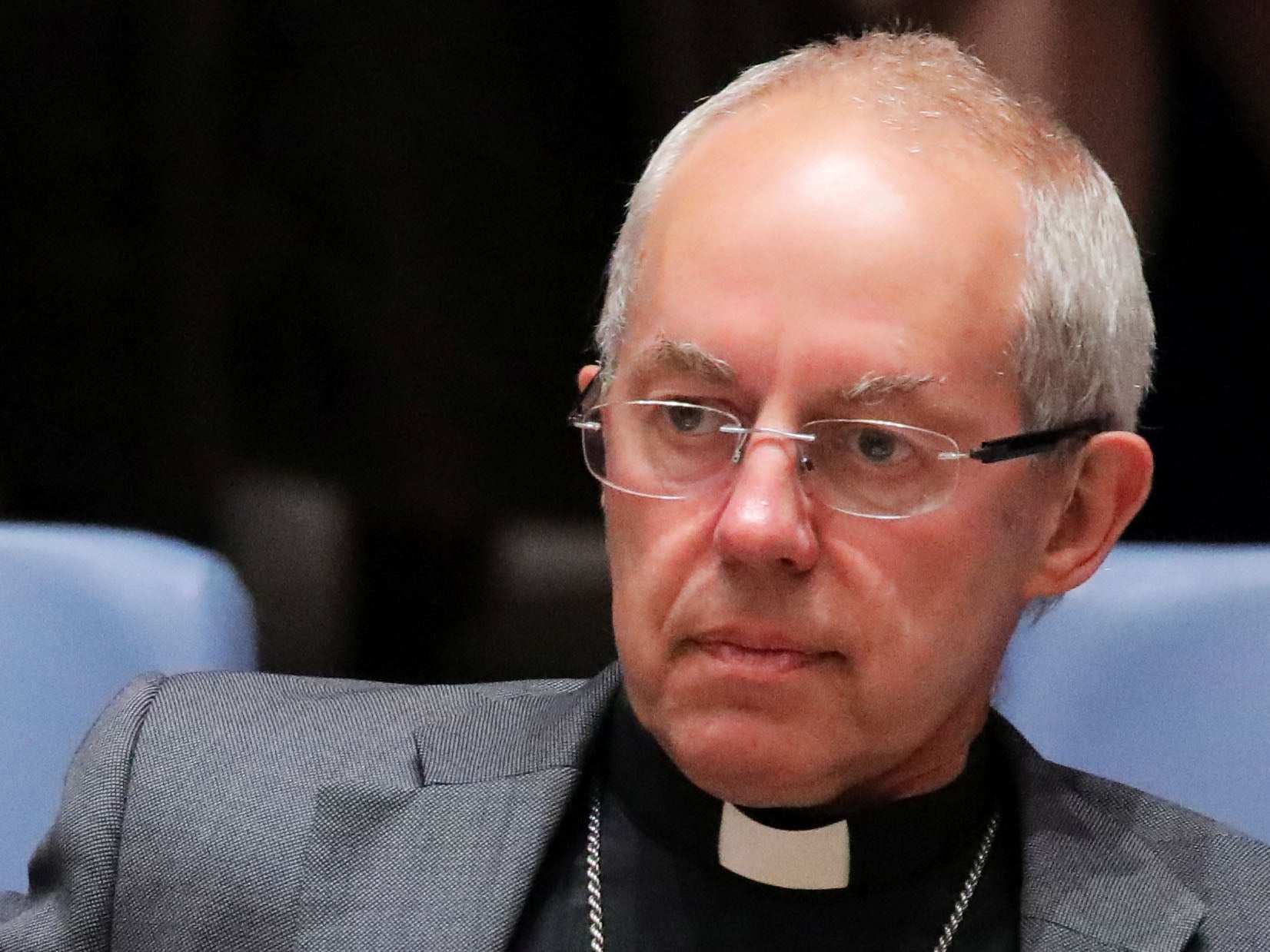Archbishop of Canterbury to lead effort to buy £400m Wonga debt
Justin Welby to gather potential investors for discussion on taking over loans and developing into low-interest lender

Your support helps us to tell the story
From reproductive rights to climate change to Big Tech, The Independent is on the ground when the story is developing. Whether it's investigating the financials of Elon Musk's pro-Trump PAC or producing our latest documentary, 'The A Word', which shines a light on the American women fighting for reproductive rights, we know how important it is to parse out the facts from the messaging.
At such a critical moment in US history, we need reporters on the ground. Your donation allows us to keep sending journalists to speak to both sides of the story.
The Independent is trusted by Americans across the entire political spectrum. And unlike many other quality news outlets, we choose not to lock Americans out of our reporting and analysis with paywalls. We believe quality journalism should be available to everyone, paid for by those who can afford it.
Your support makes all the difference.The Archbishop of Canterbury is to lead a not-for-profit attempt to buy the £400m Wonga loan book following the company’s collapse, it has been reported.
Justin Welby will meet potential investors and charities to discuss bidding for the debts in an attempt to protect some 200,000 borrowers who may be forced to pay back loans at sky-high rates if a commercial lending firm takes the business.
Under early proposals, the consortium would seek to reduce what borrowers owed by scraping – or vastly bringing down – the interest, The Guardian reports.
The action comes after the Labour MP Frank Field suggested the Church of England use some of its £7bn assets to take over the loan book.
As chair of the Commons work and pensions committee, he has asked Wonga’s administrators to delay any sale until the church had considered if it could act.
He said the archbishop showed enthusiasm for the idea and had discussed the proposal with church commissioners – although it had been decided it would be preferable if the loan book was bought by a collection of investors, rather than by the church alone.
If successful, the group may then develop into a low-cost payday lender, charging nominal rates for short-term advances in an attempt to reduce the business of high-interest lenders and loan sharks.
The archbishop had repeatedly clashed with Wonga before it collapsed suddenly in August. In 2013 he told the company’s chief executive he wanted to put it out of business by supporting rival community lending schemes.
He told the TUC conference on Wednesday: “I said to the chief executive of Wonga that I wanted credit unions to compete him out of business. Well, he’s gone!”
A Lambeth Palace spokesman said: “We are reflecting on the letter from Frank Field to help determine what may or may not be possible in the months ahead.”
Administrators Grant Thornton said it would consider all proposals. A spokesperson said: “The administrators are more than willing to consider all such interest in accordance with their statutory obligations, while working closely with the Financial Conduct Authority to conduct an orderly wind down of the business and supporting customers where possible during this period.”
Join our commenting forum
Join thought-provoking conversations, follow other Independent readers and see their replies
Comments